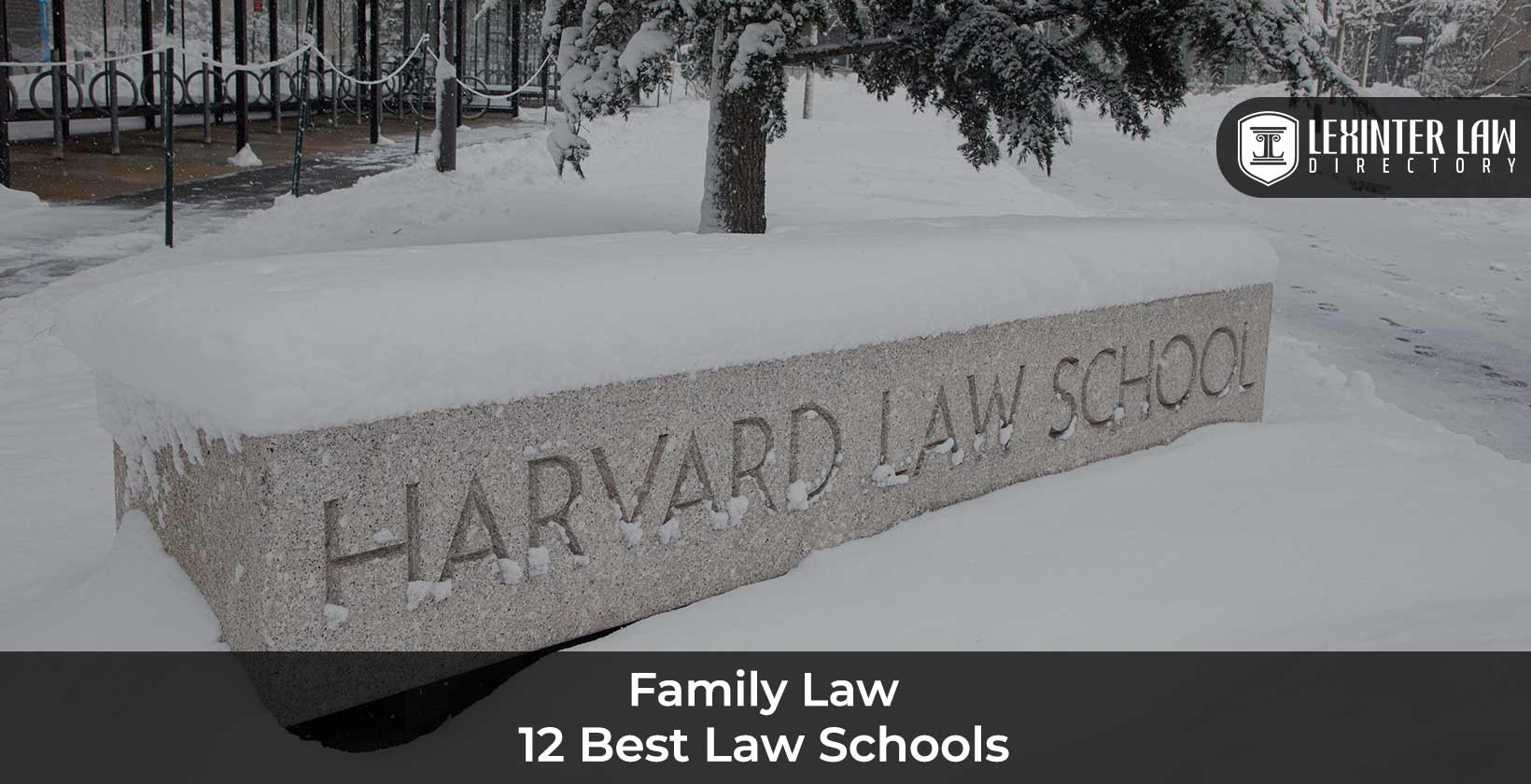12 Best Law Schools For Family Law
The 12 best law schools for family law offer comprehensive programs that prepare students for a career in a specialized field. Harvard Law School ranks among the top family law schools, providing rigorous training and practical experience. Columbia University and Michigan Law feature strong family law programs, ensuring students engage with real-world family law issues. DePaul University – College of Law and NYU School of Law are noteworthy for their commitment to producing top family lawyers through their extensive family law curriculum.
Lawyer colleges focusing on family law emphasize clinical opportunities, allowing students to gain hands-on experience. Maurer School of Law and DePaul University – College of Law are notable for their strong family law programs. The institutions blend theoretical and practical learning experiences, with students participating in family law clinics, internships, and externships. Columbia University and NYU School of Law provide similar opportunities, where students work directly with clients under the supervision of experienced family law practitioners, enhancing their understanding and skills.
Choosing the right law school for family law involves considering various factors, including faculty expertise, curriculum, and clinical opportunities. Harvard Law School, Columbia University, and Michigan Law are recognized as some of the best schools for family law. Maurer School of Law and NYU School of Law offer extensive resources and support for students interested in family law. Graduates from the institutions, including DePaul University – College of Law, are among the top family lawyers in the country, well-prepared to handle the complexities of family law cases.
Table of Contents
- 1. Harvard Law School
- 2. Maurer School Of Law
- 3. Columbia Law School
- 4. Michigan Law
- 5. DePaul University – College Of Law
- 6. NYU School Of Law
- 7. Maurice A. Deane School Of Law At Hofstra University
- 8. University Of Oregon School Of Law
- 9. Emory University School Of Law
- 10. Drake University Law School
- 11. Loyola University Chicago School Of Law
- 12. University Of Virginia School Of Law
- What Factors Determine The Quality Of Law School Career Services?
- What Do Family Lawyers Major In?
- How To Find A Good Family Lawyer Near Me With Lexinter?
1. Harvard Law School
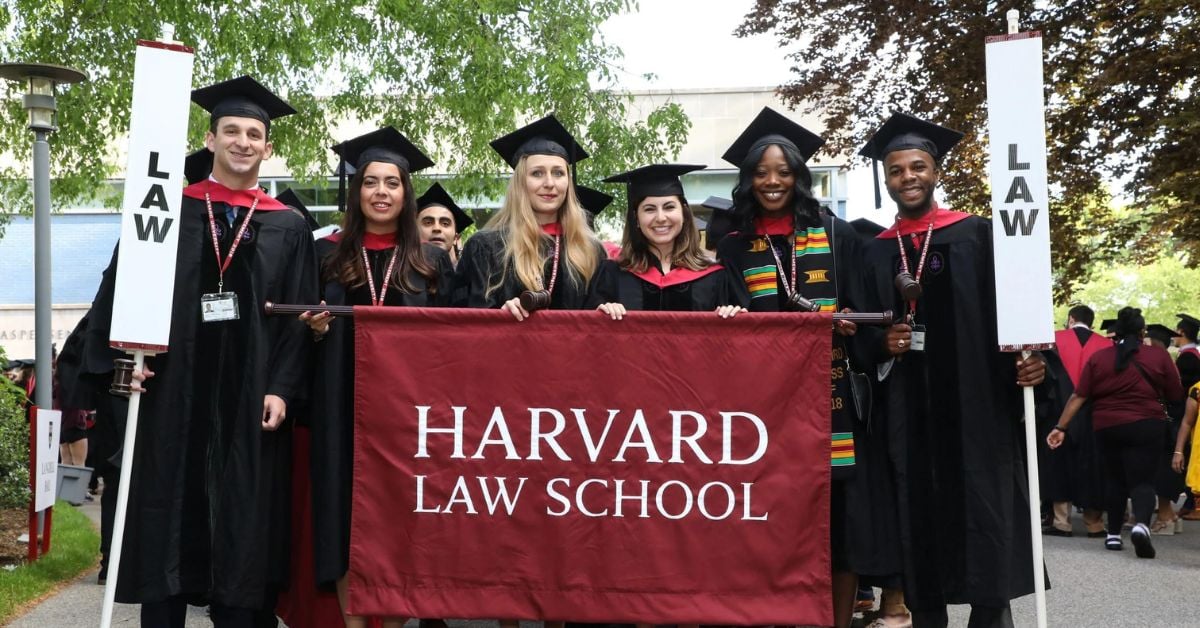
Harvard Law School, established in 1817, is one of the world’s most prestigious law schools. The law school is part of Harvard University and is located in Cambridge, Massachusetts. The school is renowned for its rigorous academic programs and influential alumni. Harvard Law School remains a leader in legal education, known for producing top legal professionals. The institution attracts students globally, contributing to a diverse and dynamic academic environment. Harvard Law School’s historic campus and extensive resources make the institution an ideal place for aspiring legal professionals. Harvard Law School offers a variety of programs, including the Juris Doctor (J.D.), Master of Laws (LL.M.), and Doctor of Juridical Science (S.J.D.) degrees. The J.D. program includes a comprehensive first-year curriculum covering core legal principles. The remaining two years allow students to tailor their studies through electives, clinics, and joint degree programs. The LL.M. program, a one-year degree, provides a broad platform for designing a course of study. Exposure to U.S. law and writing experience is emphasized in the LL.M. program. Harvard Law School’s programs are designed to provide a robust legal education.
Admission to Harvard Law School is highly competitive, reflecting the school’s prestigious reputation. The acceptance rate was approximately 9.6% for the class of 2026. Admitted students have median LSAT scores between 171 and 176 and have GPAs of around 3.90. Applicants must submit a resume, LSAT or GRE scores, letters of recommendation, and personal statements. The rigorous selection process ensures that only the most qualified candidates gain admission. Harvard Law School’s competitive admissions highlight the school’s commitment to academic excellence. The cost of attendance at Harvard Law School is significant, reflecting the quality of education offered. The tuition for the 2024-2025 academic year is $77,100. The total cost of attendance, including fees, housing, and personal expenses, is estimated at $116,500 per year. Financial aid is available, with around 40% of J.D. students receiving grant assistance. Harvard Law School’s financial aid programs help mitigate the high costs for many students. The investment in a Harvard Law School education is seen as worthwhile by many.
Harvard University is ranked No. 4 (tie) out of 196 in the 2024 U.S. News & World Report’s Best Law Schools list. Harvard Law School is consistently ranked among the top law schools globally. The school offers a comprehensive legal education renowned for its academic rigor and influential faculty. The school ranks #2 in Clinical Training (tie) and excels in Family Law. Notable alumni, including U.S. Presidents and Supreme Court Justices, bolster Harvard Law School’s reputation. The school is highly regarded in Contracts/Commercial Law (tie). The institution’s commitment to excellence makes the law school a leader in legal education. The school’s prestige attracts students and faculty from around the world. Harvard Law School’s high ranking is a testament to the institution’s impact on the legal field, particularly in Family Law. Harvard Law School offers numerous specialized programs and courses, enhancing the institution’s academic offerings. Notable programs include the Program on Negotiation and the Berkman Klein Center for Internet & Society. Various clinics focus on aspects of law, including criminal justice, environmental law, and human rights. The programs provide practical experience and advanced study opportunities in specific legal areas. Harvard Law School’s specialized programs align academic pursuits with professional practice. The school’s diverse offerings make it a prime choice for individuals interested in law schools for family law and other specialties.
Harvard Law School boasts a distinguished faculty with profound expertise in family law. Prominent figures include Jeannie Suk Gersen and Martha Minow. Jeannie Suk Gersen, the John H. Watson, Jr. Professor of Law, specializes in family law, constitutional law, and criminal law. Her work explores the intersection of family law with broader societal issues. Martha Minow, a renowned expert in family law, focuses on human rights, advocacy for women, children, and minorities, and the law’s impact on social justice issues. The faculty’s extensive research and teaching contributions make Harvard one of the top family law schools.
HLS offers extensive clinical programs, providing students with hands-on legal experience under the supervision of practicing attorneys. The school supports over 30 in-house clinics and numerous externship opportunities. Students gain practical experience in various legal areas, including criminal law, environmental law, and human rights. Clinics are integral to the HLS curriculum, helping students bridge the gap between theoretical learning and real-world practice. Harvard Law School’s clinical opportunities are highly regarded among top law schools for family law. The Harvard Law School alumni network is one of the largest and most influential in the world, comprising over 40,000 members. Prominent alumni include Barack Obama, the 44th President of the United States, and Ruth Bader Ginsburg, a former Associate Justice of the Supreme Court. Merrick Garland, the current U.S. Attorney General, graduated from HLS. Alumni engage with the school through events, mentoring programs, and career services. The HLS Office of Career Services and the Office of Public Interest Advising enhance the connections, offering tailored career advice.
Harvard Law School offers comprehensive family law courses, exploring the complexities of marriage, alternative relationships, and informal family structures. The curriculum examines the legal frameworks governing marriage and their roles in the broader political economy and family dynamics. Courses explore the intersection of constitutional law and family law, highlighting how legal issues related to family and sexual liberty shape societal norms. Students engage in practical exercises, including divorce negotiations and writing assignments, to analyze course readings. The approach prepares students for real-world legal challenges in family law, ensuring a robust understanding of family law systems. Graduates of Harvard Law School enjoy excellent employment prospects, with many securing positions in top law firms, government agencies, and non-profit organizations. The school’s career services provide extensive support, including job search resources and interview preparation. Recent employment data indicates high placement rates, with many graduates obtaining prestigious judicial clerkships and positions in public interest law. Harvard Law School graduates specializing in family law enjoy robust employment outcomes due to the school’s extensive career support and the demand for skilled family law practitioners. 91.8% of graduates benefit from comprehensive career support and the prestige of an HLS degree employed 10 months after graduation. Harvard Law School continues to set the standard for legal education.
2. Maurer School Of Law
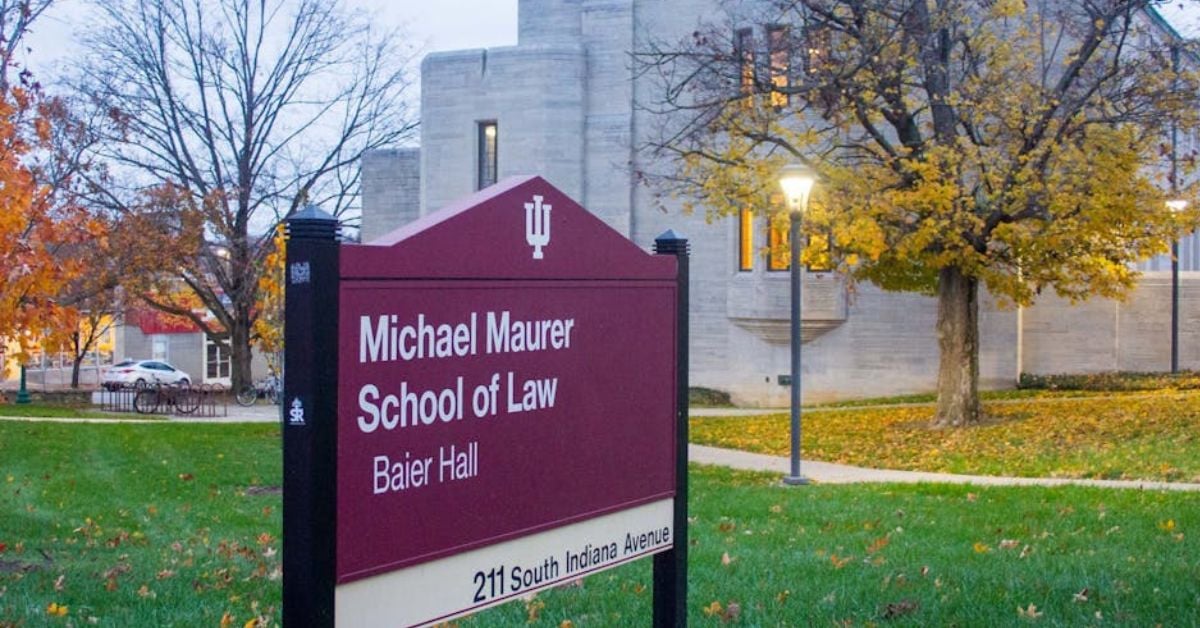
Maurer School of Law at Indiana University Bloomington, established in 1842, is a prestigious public law school known for its strong academic programs and impressive faculty. Maurer offers various degrees, including JD, LLM, SJD, and MCL. Joint degrees like JD/MBA and JD/MPA are available. The curriculum covers diverse legal subjects, including intellectual property, international law, and environmental law. Maurer School of Law is renowned for the institution’s academic excellence and commitment to preparing students for successful legal careers. Maurer School of Law programs are designed to provide a comprehensive legal education with a focus on family law. The law school offers specialized courses in family law, addressing topics like marriage, divorce, child custody, and adoption. Joint degree programs, including JD/MSW and JD/MPA, allow students to combine legal education with social work or public administration studies, enhancing their ability to address family law issues comprehensively. Maurer School of Law emphasizes practical training through clinical programs, externships, and family law-focused internships. The curriculum is continuously updated to meet the evolving needs of the family law profession, preparing students for dynamic legal careers.
Maurer School of Law has a competitive acceptance rate of approximately 46.9%. The median LSAT score for admitted students is around 165. The median undergraduate GPA for admitted students ranges from 3.62 to 3.97. Maurer’s admissions process is holistic, considering various factors beyond test scores and GPAs. The approach ensures a diverse and talented student body. The law school’s emphasis on academic and professional excellence attracts high-caliber applicants from across the country. Tuition for residents at Maurer School of Law is approximately $38,428 for the 2023-2024 academic year. Non-residents face tuition costs around $59,478. Additional living expenses, whether on or off-campus, average about $16,420 annually. Scholarships and financial aid are available to help offset the costs. Maurer School of Law strives to make legal education accessible and affordable for all students. Financial support options are tailored to meet the diverse needs of the student body.
Maurer School of Law is consistently ranked No. 42 (tie) out of 196 in Best Law Schools, according to U.S. News & World Report. Maurer is highly regarded for the institution’s academic rigor and the quality of the institution’s faculty. Faculty members at Maurer School of Law are recognized experts in their fields. Specialized rankings include No. 28 in Business/Corporate Law, No. 36 in Health Care Law, and No. 29 in International Law. Maurer School of Law maintains a strong reputation among law schools for family law and other specialties. Maurer School of Law offers numerous specialized programs, including strong focuses on intellectual property law, family law, international law, and tax law. Clinical programs such as the community legal clinic and the entrepreneurship law clinic provide practical experience. The inmate legal assistance project is another notable clinical program. Maurer offers extensive externship opportunities and international study programs. The school’s emphasis on practical training ensures graduates are well-prepared for their legal careers. Maurer School of Law’s supportive community and first-rate resources enhance the student experience.
The Maurer School of Law at Indiana University Bloomington boasts a distinguished faculty with expertise in various legal fields, including family law. Professors include Aviva Orenstein, an expert in family law, civil procedure, and evidence. Her research focuses on family dynamics and child custody issues, providing students with comprehensive knowledge and practical insights into family law. Another notable faculty member, Jody Lyneé Madeira, specializes in bioethics and reproductive technology, contributing significantly to family law matters involving public health and fertility issues. Maurer School of Law offers a comprehensive range of clinical programs providing hands-on legal experience. The programs include six in-house live-client public-interest clinics where students practice under the supervision of experienced faculty. Clinics cover diverse areas like community legal services, entrepreneurship law, and inmate legal assistance. Maurer School of Law ensures students develop practical skills and gain real-world experience. The practical approach is crucial for preparing students for various legal careers, including individuals in law schools for family law and other specialties.
The Maurer School of Law has a strong and active alumni network of over 12,000 members worldwide. Notable alumni include Wendell Willkie, a renowned trial lawyer, and 1940 presidential nominee Lee H. Hamilton, a former member of the United States House of Representatives, and Loretta H. Rush, Chief Justice of the Indiana Supreme Court. Alumni engagement includes mentorship programs, networking events, and career support initiatives. Maurer School of Law hosts events facilitating connections between current students and alumni, enhancing professional development and career opportunities. The course offerings at Maurer School of Law are extensive and diverse, covering traditional legal subjects and contemporary issues. Courses range from administrative law and family law to advanced environmental law and practice. Specialized areas include cybersecurity, intellectual property, and antitrust law. The curriculum is designed to provide a robust legal education, emphasizing theoretical foundations and practical skills through seminars and clinical components. Maurer School of Law ensures students receive a comprehensive education, preparing them for successful legal careers.
Graduates of the Maurer School of Law have strong employment outcomes, with a significant percentage securing positions in prestigious law firms, government agencies, and public interest organizations. The law school provides comprehensive career services, including job search resources, judicial clerkship placements, and externship opportunities. The Maurer School of Law has a strong track record of placing graduates in various legal fields, including family law. Recent employment reports indicate that 93.7% of graduates find employment within nine months of graduation. Maurer School of Law’s career support demonstrates the high demand for the institution’s graduates and the effectiveness of its employment programs.
3. Columbia Law School
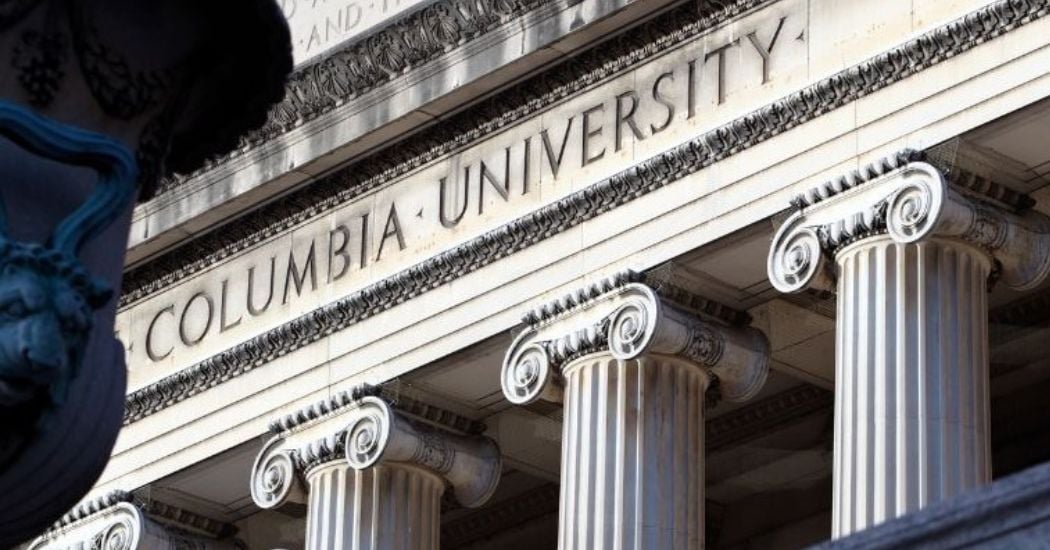
Columbia University, founded in 1754, is an Ivy League university in New York City. Columbia is one of the oldest higher education institutions in the United States. The university is renowned for its academic excellence and research contributions. Columbia University offers diverse programs across humanities, sciences, engineering, business, law, and medicine disciplines. Columbia’s rich history and prestigious reputation make the institution a sought-after destination for students worldwide. The university’s commitment to academic rigor and innovation continues to attract top-tier faculty and students. Columbia University remains a leading force in global education.
Columbia Law School, part of Columbia University, provides comprehensive legal education. Programs include the Juris Doctor (JD), Master of Laws (LLM), and Doctor of the Science of Law (JSD). Students specialize in fields like corporate law, international law, environmental law, and family law. Columbia Law School integrates theoretical and practical training, preparing students for various legal careers. Columbia Law School’s curriculum supports diverse interests, ensuring robust legal education. Clinical programs and hands-on experiences enhance student learning. Columbia Law School is a leading legal education institution that attracts aspiring lawyers globally.
Columbia Law School is highly selective, with an acceptance rate of 12.2%. Admitted students possess impressive academic credentials. The median LSAT score is 173, and the median undergraduate GPA is 3.9. Columbia Law School’s rigorous admissions process ensures only top-tier candidates gain entry. High standards reflect Columbia Law School’s commitment to excellence. Students admitted to Columbia Law School are well-prepared for successful legal careers. The school’s esteemed reputation is contributed to by the institution’s selectivity. Prospective students must demonstrate strong academic performance and a passion for law. Columbia Law School’s tuition is $81,888 for the 2024-2025 academic year. Additional fees and living expenses increase the total cost to approximately $119,997 annually. Financial aid options help manage the costs, ensuring accessibility. Columbia Law School’s tuition reflects the high-quality education provided. Investing in a Columbia Law School education offers long-term career benefits. Financial planning and resources support students in managing expenses. Columbia Law School’s commitment to affordability and excellence makes the institution a top choice for aspiring lawyers. Financial aid initiatives continue to expand opportunities for diverse students.
Columbia Law School ranks among the top law schools in the United States. Columbia Law School is recognized for academic rigor and influential faculty, holding the #8 position in U.S. News & World Report’s 2024 rankings. Strong career prospects for graduates are notable, particularly in corporate law and public interest law. Columbia Law School’s reputation attracts students worldwide. The school’s prestigious status contributes to the institution’s appeal. Alumni success stories reinforce Columbia Law School’s esteemed position. Columbia Law School remains a leading institution for legal education and professional development. Columbia Law School offers specialized programs in areas like International and Comparative Law, Litigation and Dispute Resolution, and Social Justice and Human Rights. The family law program addresses critical issues, including divorce, child custody, and domestic violence. Columbia Law School’s curriculum combines theoretical knowledge with practical experience. Clinical experiences enhance understanding of family law practice. Specialized programs prepare students for diverse legal careers. The focus on family law equips students to handle sensitive cases compassionately. Columbia Law School’s comprehensive education ensures graduates are well-prepared for legal challenges.
Columbia Law School features several prominent faculty members specializing in family law. Carol Sanger, the Barbara Aronstein Black Professor Emerita of Law, is renowned for her work in reproductive rights and family law. Her research addresses issues such as abortion, maternal conduct, and surrogacy. Josh Gupta-Kagan, a Clinical Professor of Law, directs the Family Defense Clinic, focusing on representing parents in child abuse and neglect cases. Clare Huntington, the Barbara Aronstein Black Professor of Law, specializes in family law, child welfare, and family policy. Columbia Law School offers various clinical opportunities for practical experience while providing legal assistance to the community. The Family Defense Clinic, led by Josh Gupta-Kagan, allows students to represent families facing government intervention in their parental rights. The clinic emphasizes hands-on learning and advocacy for parents and children in child welfare cases. Other clinics, like the Community Advocacy Lab and the Smith Family Human Rights Clinic, offer additional avenues for experiential learning. Columbia Law School ensures students gain essential skills for family law practice.
Columbia Law School boasts a vast and influential alumni network, with over 29,000 members worldwide. Notable alumni relevant to family law include Ruth Bader Ginsburg, who graduated at the top of her class from Columbia and became a leading advocate for gender equality and family rights as a Supreme Court Justice. Another distinguished alumnus is Eric Holder, former U.S. Attorney General, who has worked extensively on issues related to civil rights and family law. Networking opportunities with successful alumni enhance career prospects for students.
Columbia Law School offers a comprehensive curriculum that includes various courses in family law and related fields. Key courses include “Family Law,” “Children and the Law,” and “Reproductive Rights and Justice.” The school offers courses in other legal areas, like “Contracts,” “Torts,” and “Civil Procedure,” as well as specialized courses like “International Law” and “Intellectual Property Law.” Columbia Law School’s curriculum prepares students for diverse legal careers, ensuring a strong foundation in family law and other essential legal disciplines. Columbia Law School graduates have excellent employment outcomes, with 96.8% of graduates employed ten months after graduation. The school’s rigorous curriculum and extensive network facilitate numerous family law employment opportunities for graduates. The law school has strong relationships with top law firms, public interest organizations, and government agencies, ensuring a high placement rate in prestigious legal positions. Graduates secure positions in leading law firms, judicial clerkships, and influential public service roles. Columbia Law School’s robust employment support enhances career prospects for students, making the institution one of the top law schools for family law and other legal fields.
4. Michigan Law
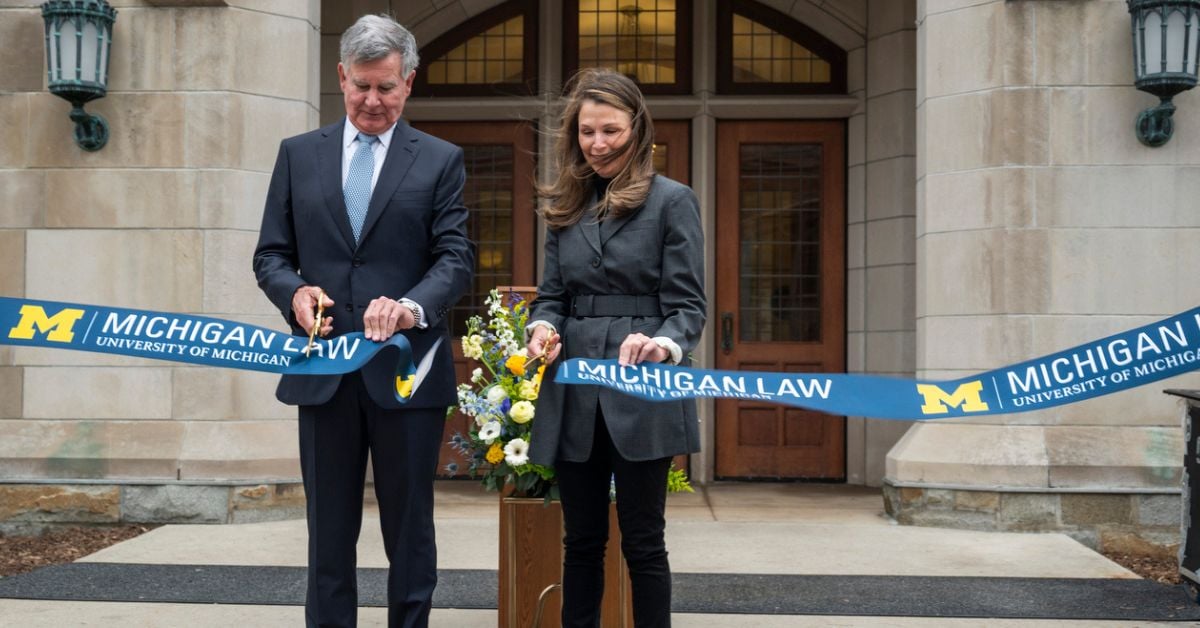
The University of Michigan Law School, commonly known as Michigan Law, is a prestigious public law school located in Ann Arbor, Michigan. Michigan Law is one of the oldest and most respected law schools in the United States, founded in 1859. The institution offers a comprehensive legal education that combines theoretical knowledge with practical skills. Michigan Law provides a supportive and intellectually stimulating environment, attracting students from diverse backgrounds committed to pursuing excellence in law.
Michigan Law’s family law program offers specialized courses and practical training in various aspects of family law. The program includes courses on child custody, divorce, domestic violence, and adoption. Students gain hands-on experience through clinics and externships, where they work on real cases under faculty supervision. The Family Law Project, a key component of the program, allows students to assist clients facing family law issues. The curriculum prepares students for careers as family law practitioners, advocates, and policymakers.
The acceptance rate for Michigan Law stands at approximately 12.6%, reflecting the institution’s competitive admissions process. Admitted students present median LSAT scores between 165 and 172 and a median GPA of around 3.85. The admissions process is holistic, considering factors beyond academic metrics, including personal statements and supplemental essays. Applicants with a demonstrated interest in family law, through relevant experiences or coursework, strengthen their applications. Michigan Law seeks diverse, motivated individuals committed to contributing to the legal profession and community. Tuition for the 2024-2025 academic year at Michigan Law is full-time: $69,584 for in-state residents, while non-residents pay full-time: $72,584. Additional fees and living expenses bring the total cost of attendance to approximately $24,364 for eight months. Financial aid and scholarships are available to help offset the costs. Students pursuing careers in family law qualify for specific scholarships or grants to support individuals focused on public interest law and advocacy.
Michigan Law consistently ranks among the top law schools in the United States, currently holding the No. 9 (tie) position in Best Law Schools by U.S. News & World Report. The school’s strong reputation is bolstered by the institution’s distinguished faculty, rigorous academic programs, and extensive alumni network. Graduates enjoy high employment rates, with over 95.4% securing jobs within ten months of graduation. The family law program’s excellence contributes to Michigan Law’s overall prestige, attracting students passionate about family law practice and reform. Michigan Law offers specialized programs and dual degrees, allowing students to tailor their education to their interests. Students have access to various clinics in family law, including the Civil-Criminal Litigation Clinic and the Child Advocacy Law Clinic. The opportunities provide practical experience working on real cases under the supervision of experienced faculty. The specialized family law curriculum, combined with hands-on learning, prepares students to address complex legal issues within family dynamics effectively.
Michigan Law School features prominent faculty members with expertise in family law. Vivek Sankaran, Clinical Professor of Law, directs the Child Advocacy Law Clinic and the Child Welfare Appellate Clinic. His work focuses on child welfare proceedings, improving foster care outcomes, and empowering parents in juvenile courts. Bridget Mary McCormack, an Adjunct Clinical Assistant Professor, has a notable background as a former Chief Justice of the Michigan Supreme Court. Christopher Knight, Clinical Assistant Professor of Law, contributes to the family law field through his involvement in the Legal Practice Program, providing students with practical litigation skills.
Michigan Law offers a range of clinical opportunities in family law and other areas. The Child Advocacy Law Clinic allows students to represent clients in foster care proceedings, while the Child Welfare Appellate Clinic focuses on appeals in parental rights termination cases. Other clinics at the school include the Pediatric Advocacy Clinic, focusing on legal issues related to child health and well-being. The Juvenile Justice Clinic involves representing youth in family courts. The clinics provide hands-on legal experience under the supervision of experienced faculty. Michigan Law boasts a robust alumni network with notable figures in family law. Bridget Mary McCormack, who served as the Chief Justice of the Michigan Supreme Court, has had a significant impact on legal reforms and access to justice initiatives. Vivek Sankaran has made substantial contributions through his advocacy and clinical work in child welfare. The alumni network offers extensive opportunities for current students and graduates to connect and advance their careers, particularly in family law practice.
Michigan Law provides comprehensive coursework in family law. Courses include “Family Law,” which covers marriage, divorce, and child custody, and “Children and the Law,” focusing on legal issues affecting children. Specialized clinics, including the Child Advocacy Law Clinic and the Pediatric Advocacy Clinic, equip students with the knowledge and practical skills needed to excel in family law practice. The curriculum ensures that students are well-prepared for the complexities of family law. Michigan Law School’s family law graduates enjoy excellent employment outcomes. 95.4% were employed within ten months of graduation, with many securing positions in top law firms, judicial clerkships, and public interest roles. The school’s strong emphasis on practical training and its extensive alumni network contribute to high job placement rates and competitive salaries. Graduates specializing in family law find rewarding careers advocating for families and children, benefiting from Michigan Law’s strong reputation and comprehensive training.
5. DePaul University – College Of Law
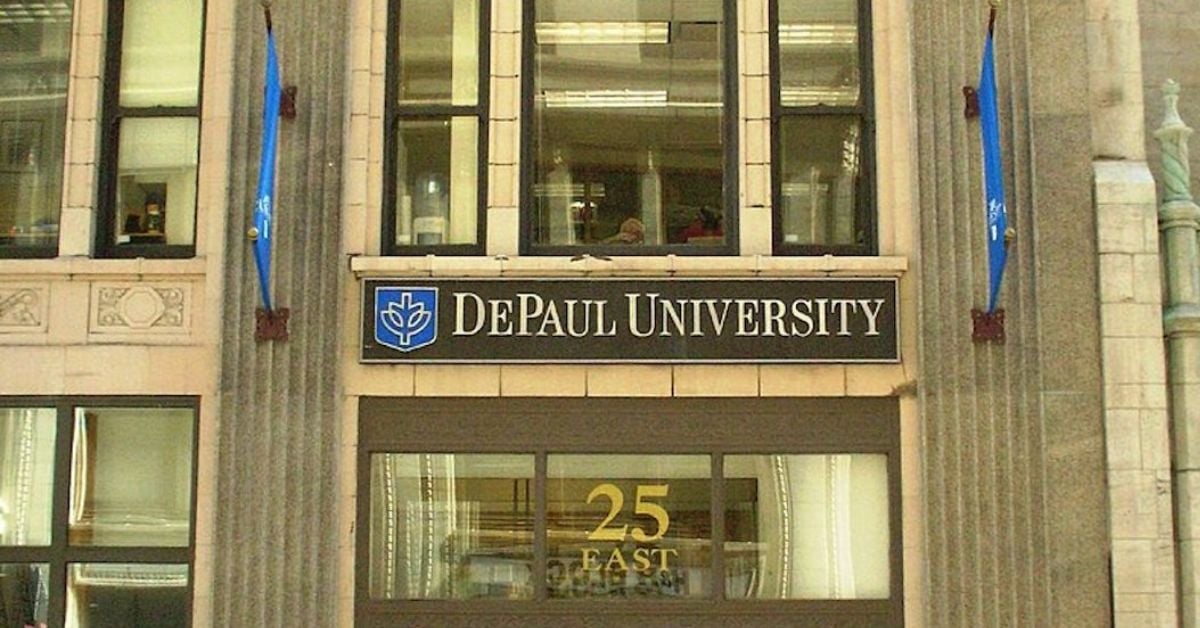
DePaul University College of Law is a distinguished part of DePaul University, located in the heart of Chicago. DePaul University College of Law integrates theoretical insights with practical training and is known for the institution’s commitment to providing academic and professional opportunities. The institution prepares students for diverse legal challenges through a comprehensive and dynamic curriculum. DePaul University College of Law attracts students interested in various legal fields, particularly family law, for its strategic location and robust academic offerings. DePaul College of Law offers a robust Juris Doctor (JD) program with full-time and part-time options. The JD program emphasizes practical skills and ethical practice, incorporating experiential learning through clinics and externships. DePaul offers Master of Laws (LLM) and Master of Jurisprudence (MJ) programs for advanced legal studies. Students interested in family law benefit from specialized courses and hands-on experiences designed to prepare them for effective advocacy and practice in the field.
The acceptance rate at DePaul University College of Law is approximately 43.6%, making the institution moderately selective. Admissions decisions consider undergraduate academic performance, LSAT or GRE scores, professional experience, and other personal attributes. Applicants with a strong interest in family law and relevant experiences enhance their applications. GPA ranges for admitted students fall between 3.27 and 3.79, with LSAT scores ranging from 153 to 159. DePaul seeks diverse candidates who are committed to contributing to the legal profession. Tuition for the full-time JD program is $53,716 annually for the 2024-2025 academic year. Part-time JD students pay $34,900 annually. Additional fees and living expenses increase the total cost of attendance. DePaul University College of Law strives to offset the costs with scholarships and financial aid, making education accessible. Students focusing on family law qualify for specific scholarships to support individuals pursuing public interest and advocacy careers.
DePaul University College of Law is well-regarded, particularly for the institution’s strong connections within Chicago’s legal and business communities. DePaul University is ranked No. 134 (tie) out of 196 in Best Law Schools and No. 32 (tie) out of 68 in Part-time Law by U.S. News & World Report. The school’s strategic downtown location enhances students’ access to many professional opportunities. Graduates specializing in family law benefit from the extensive network and practical training provided. DePaul College of Law offers several specialized programs, with a notable emphasis on family law. The family law curriculum covers various legal and policy issues, including marriage, divorce, child advocacy, juvenile justice, domestic violence, disability, and elder law. Other specialized areas include intellectual property, health law, international law, and public interest law. DePaul’s comprehensive approach ensures students are well-prepared for careers in family law and other legal fields.
DePaul University College of Law features several distinguished faculty members specializing in family law. Kathryn Liss serves as the Executive Director of the Schiller DuCanto & Fleck Family Law Center. Kathryn Liss is highly regarded for her work in family law education and professional development. Professor Susan Bandes has contributed significantly to the understanding of family law through her teaching and research on related legal issues. The expertise of the faculty members enhances DePaul’s reputation as one of the leading law schools. DePaul College of Law offers robust clinical opportunities in family law through the Schiller DuCanto & Fleck Family Law Center. The Family Law Field Clinic provides hands-on experience in various aspects of family law, including marriage, divorce, legal separation, parentage, and adoption. Students work closely with Chicago Volunteer Legal Services, gaining practical skills by representing clients under the supervision of experienced attorneys. The clinical opportunities ensure students are well-prepared for family law practice.
DePaul Law has a strong network of alumni who have made significant contributions to the field of family law. Notable alumni include prominent family law attorneys and judges who actively engage with the law school to provide mentorship and career opportunities for current students. The Schiller DuCanto & Fleck Family Law Center hosts events and workshops that facilitate networking among students, faculty, and practicing professionals. The network supports students in their career development and job placement. DePaul College of Law offers a comprehensive curriculum in family law. Key courses include “Family Law,” covering marriage, divorce, and child custody, and “Child Advocacy,” focusing on legal issues affecting children. Another important course is “Domestic Violence Law,” addressing legal responses to domestic violence. The courses are designed to provide students with the theoretical knowledge and practical skills necessary for a career in family law. The curriculum ensures students are well-equipped for the complexities of family law practice.
Graduates of DePaul College of Law have strong employment outcomes, with 80.4% securing positions in family law practices, public interest organizations, and governmental agencies. The law school’s emphasis on practical training through clinics and externships, coupled with the institution’s extensive alumni network, ensures that students are well-prepared for the job market. Employment data indicate high placement rates for graduates within ten months of graduation, reflecting the effectiveness of DePaul’s career services and professional development programs.
6. NYU School Of Law
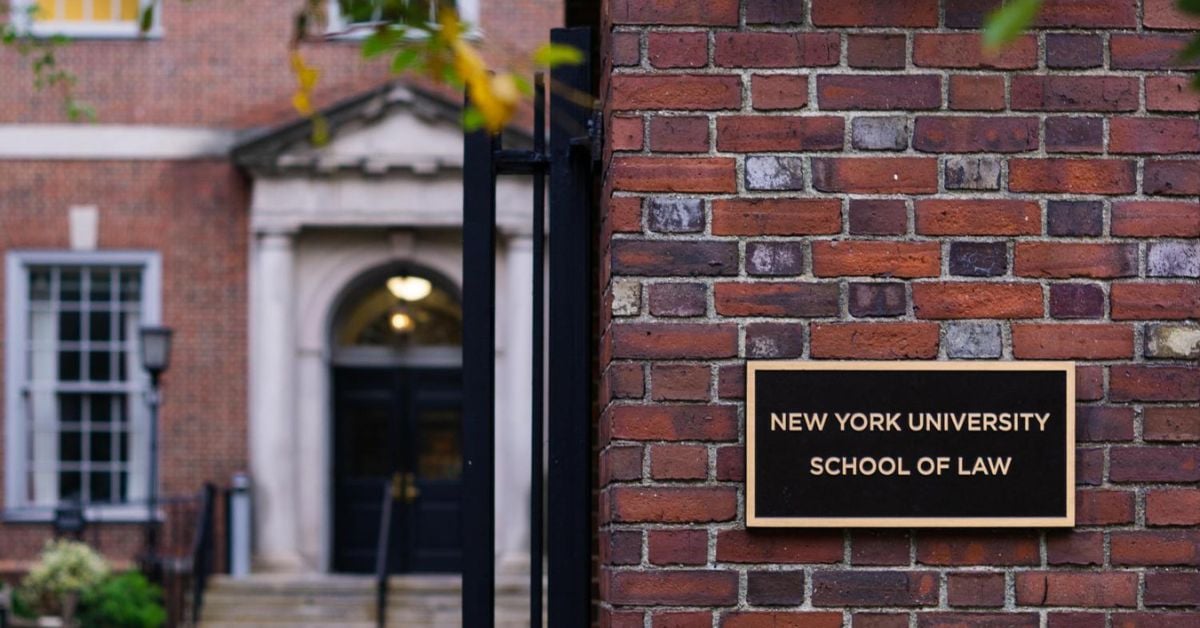
NYU School of Law, established in 1835, is a premier law school located in New York City’s Greenwich Village. NYU Law provides a comprehensive legal education with a global perspective and is known for its academic rigor and innovative programs. The institution’s influential faculty and a strong emphasis on public interest law attract students from diverse backgrounds. NYU Law is one of the premier law schools for family law, offering students unparalleled opportunities to engage in meaningful legal work. NYU School of Law offers a range of programs, including the Juris Doctor (JD) and Master of Laws (LLM), with nine specializations. The JD program focuses on providing a solid foundation in law and practical skills through clinics and externships. The LLM program allows students to specialize in International Legal Studies, Environmental and Energy Law, and Corporation Law. Family law courses and clinics provide students with a comprehensive understanding of legal issues affecting families.
NYU Law is highly selective, with an acceptance rate of approximately 16.8%. The competitive admission process reflects the school’s high academic standards and the strong qualifications of the institution’s applicant pool. The GPA range for admitted students is 3.77-3.96, with a median LSAT score of 172. Applicants with a demonstrated interest in family law enhance their applications. NYU Law seeks diverse, motivated individuals committed to significantly impacting the legal profession.
The tuition at NYU Law is $79,954 for the 2024-2025 academic year. Additional fees for health, registration, services, and technology amount to $3,198. The total estimated cost of attendance, including housing, food, and other living expenses, is around $118,137 per year. Financial aid and scholarships are available to help offset the costs. Students pursuing family law careers qualify for specific scholarships or grants aimed at supporting individuals focused on public interest law. NYU Law is consistently ranked No. 9 (tie) out of 196 Best Law Schools in the United States by U.S. News & World Report. The school is renowned for the institution’s excellence in various legal fields, including international law, tax law, and public interest law. NYU Law’s strategic location in New York City offers students unparalleled access to professional opportunities and networks as one of the best law schools in New York. Graduates specializing in family law benefit from the school’s strong reputation and comprehensive training.
NYU Law’s specialized programs in family law include various courses and clinics designed to prepare students for careers in the field. Key offerings include Family Law, which covers federal and state laws on familial relationships, and Child, Parent & State, focusing on the legal dynamics between children, parents, and the state. The Children’s Rights Clinic provides practical experience in representing young people in civil legal settings. The Family Defense Clinic offers students the opportunity to represent parents in child welfare cases, providing hands-on family law practice. NYU School of Law boasts a strong faculty in the field of family law. Christine Gottlieb, the director of the Family Defense Clinic, is recognized for her expertise in racial justice, child welfare, and family regulation. Peggy Cooper Davis, a former family court judge, teaches Family Law and is known for her extensive knowledge of federal and state laws concerning familial relationships. Martin Guggenheim, an expert on children’s rights and family law, leads the course “Child, Parent, and State,” focusing on legal dynamics between children, parents, and the state.
NYU Law provides extensive clinical opportunities in family law through the institution’s Family Defense Clinic. The clinic focuses on preventing unnecessary family separations and advocating for the reunification of children with their parents in foster care. Students engage in direct representation, systemic advocacy, and interdisciplinary collaboration with social work students. Another notable clinic is the Children’s Rights Clinic, offering students the chance to represent young people in various civil legal settings. The clinics provide comprehensive legal and social services to clients. NYU Law’s alumni network includes prominent figures in family law. Christine Gottlieb, director of the Family Defense Clinic, is an alumna and a pivotal figure in advocating for family justice. Cathy Cramer, an NYU Law graduate, credits her clinical experiences with shaping her career in family law and juvenile justice. The alumni network supports current students and graduates, facilitating mentorship and career opportunities. NYU Law’s clinical programs have a lasting impact on alumni careers in family law.
NYU Law offers a robust selection of courses in family law. Key courses include “Family Law,” covering rights and obligations related to marriage, child custody, and guardianship. “Child, Parent & State” focuses on the legal rights and responsibilities of parents and children. The “Children’s Rights Clinic” provides hands-on experience in representing children in legal proceedings. Other relevant courses include “Children’s Rights in International Law,” examining global frameworks for children’s rights. Seminars address the intersection of family law with issues of gender, sexuality, and racial justice. NYU law school graduates enjoy excellent employment outcomes. Family law graduates consistently secure competitive positions in esteemed law firms and advocacy organizations. The Class of 2023 saw approximately 64.8% securing positions in law firms, while 32.64% pursued roles in public interest, government, or judicial clerkships. The median salary for graduates entering law firms is $215,000. The school’s strong emphasis on practical training through clinics and externships ensures high job placement rates. Graduates specializing in family law benefit from NYU Law’s extensive alumni network and comprehensive training.
7. Maurice A. Deane School Of Law At Hofstra University
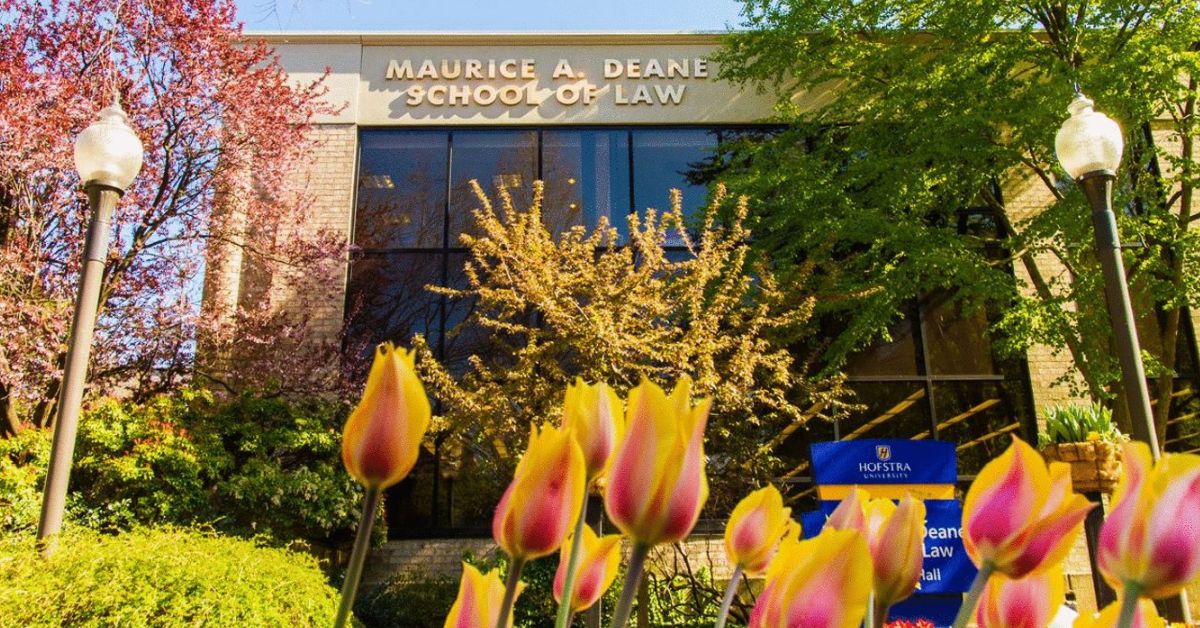
The Maurice A. Deane School of Law at Hofstra University, located in Hempstead, New York, is known for the institution’s innovative curriculum and commitment to practical legal training. Offering a comprehensive legal education focusing on integrating theory and practice, Hofstra Law attracts students interested in various legal fields. The school’s emphasis on family law makes the institution a notable option among law schools for family law, providing a solid foundation and practical experience in the specialization. Hofstra Law offers a traditional Juris Doctor (JD) program requiring at least 87 credit hours. The first year includes foundational courses, while the second year emphasizes skills-based training. The school provides Master of Laws (LLM) degrees in American Legal Studies and Family Law. A joint JD/MBA program in collaboration with Hofstra’s Frank G. Zarb School of Business is available. Students interested in family law benefit from specialized courses and practical training opportunities.
The acceptance rate at Hofstra Law is approximately 50.4%, making the institution moderately selective. The median LSAT score for admitted students ranges from 150 to 159, with a median undergraduate GPA of 3.59. The admissions process considers various factors, including academic performance, professional experience, and personal attributes. Applicants with a strong interest in family law and relevant experiences enhance their applications, reflecting the school’s commitment to diversity and excellence. Tuition at Hofstra Law is $59,214 for the 2024-2025 academic year. Additional costs for room and board bring the total estimated cost of attendance to around $78,000 annually. Financial aid and scholarships are available to help offset the costs. Students pursuing family law careers qualify for specific scholarships to support individuals focused on public interest law. Hofstra Law strives to make legal education accessible and affordable for all students.
Hofstra Law is ranked No. 130 (tie) out of 196 in Best Law Schools for scholarly impact and is recognized for the institution’s innovative approach to legal education. The school’s clinical programs and emphasis on practical skills training are highly regarded. The specialty rankings include No. 85 in Business/Corporate Law (tie), No. 113 in Clinical Training (tie), and No. 88 in Constitutional Law (tie). Graduates specializing in family law benefit from the school’s strong reputation and comprehensive training. Hofstra Law offers several specialized programs, with a notable emphasis on family law. The LLM in Family Law program is one of the country’s few programs. Courses cover areas like divorce, child custody, and family violence. The school offers concentrations in alternative dispute resolution, business law, criminal law, health law, intellectual property law, and international law. The comprehensive approach ensures students are well-prepared for careers in family law and other legal fields.
Hofstra Law features several distinguished faculty members specializing in family law. Andrew Schepard, the Sidney and Walter Siben Distinguished Professor of Family Law, directs the Center for Children, Families, and the Law. Barbara Stark, the Joseph Kushner Distinguished Professor in Civil Liberties Law, contributes significantly to family law and international law. Theo Liebmann, Clinical Professor of Law and Director of the Youth Advocacy Clinic, focuses on child welfare and juvenile justice. The expertise of the faculty members enhances Hofstra Law’s reputation as one of the leading law schools for family law.
Hofstra Law offers robust clinical opportunities through the Youth Advocacy Clinic and Family Law Practicum. The Youth Advocacy Clinic allows students to represent young clients in cases involving special immigrant juvenile status and child maltreatment. The Family Law Practicum provides hands-on experience in various family law proceedings, including custody disputes and divorce cases. The clinical programs equip students with practical skills and experience, preparing them for successful careers in family law.
Hofstra Law’s alumni network includes many notable figures in family law. Joey Jackson, a prominent attorney and Legal Analyst for CNN/HLN exemplifies Hofstra Law’s commitment to producing influential legal professionals. Lisa A. Cairo, a distinguished family law attorney and judge, reflects the school’s dedication to justice and public service. The alumni network supports current students and graduates, facilitating mentorship and career opportunities within the family law sector.
Hofstra Law offers a comprehensive curriculum in family law. Core courses include “Family Law” and “Family Law with Skills Component.” Elective courses cover topics like “Children and the Law,” “Domestic Violence,” “LGBT Lawyering,” and “International Family Law.” Students participate in externships with organizations like The Legal Aid Society and the Children’s Law Center, gaining practical experience in family law settings. The curriculum ensures students are well-prepared for the complexities of family law practice. Graduates in family law consistently secure positions in respected law firms and advocacy groups. Hofstra Law graduates have strong employment outcomes, with 81% of the class of 2021 employed within ten months of graduation. Graduates secure positions in top law firms, public interest roles, and judicial clerkships. The school’s emphasis on practical training through clinics and externships significantly enhances employability. Graduates specializing in family law benefit from Hofstra Law’s comprehensive training and robust alumni network, making the school a top choice among law schools for family law.
8. University Of Oregon School Of Law

The University of Oregon School of Law, founded in 1884, is Oregon’s only public law school. The Knight Law Center houses Oregon Law, which is known for its academic excellence and has a supportive community located in Eugene. Legal writing, environmental law, and dispute resolution are strong programs, with U.S. News & World Report ranking them #1, #7, and #11 respectively. The school’s emphasis on family law and other practical experiences prepares students for diverse legal careers. The Juris Doctor program at the University of Oregon School of Law includes dual degrees in business, community planning, and environmental studies. Practical experience is emphasized through clinics, externships, and fellowships, ensuring students are practice-ready. The family law program offers practical opportunities through clinics like the Domestic Violence Clinic. The approach provides hands-on experience in family law cases, which is vital for future legal practice.
The acceptance rate for the 2023-2024 academic year at the University of Oregon School of Law is 75.23%. Admitted students have a median LSAT score of 158 and a median GPA of 3.52. The family law program attracts students with strong academic credentials. Practical experience in family law enhances their legal education, making the acceptance process competitive. Tuition for the 2024-2025 academic year is $48,516 for Oregon residents and $60,414 for non-residents. Total costs, including living expenses and books, are estimated at $69,684 for residents and $81,582 for non-residents. The family law program, with the institution’s practical components, justifies the investment. Financial aid options help mitigate costs for students interested in family law careers.
The University of Oregon School of Law is ranked No. 82 in Best Law Schools by U.S. News & World Report. The school is ranked #1 in Legal Writing, #11 in Dispute Resolution, and #7 in Environmental Law. The family law program enhances the school’s reputation, offering students unique practical experiences. High rankings reflect the quality of education and opportunities provided. Oregon Law offers specialized programs, including Legal Research and Writing, Environmental Law, Dispute Resolution, and Family Law. The family law program, supported by the Domestic Violence Clinic, provides hands-on experience in handling family law cases. The practical approach prepares students for real-world legal challenges. Specialized programs enhance the overall educational experience at Oregon Law.
The University of Oregon School of Law boasts a highly respected faculty with expertise in family law. Key faculty members include Merle H. Weiner, the Philip H. Knight Professor of Law, renowned for extensive work in family law and domestic violence. Kathryn Moakley, an Assistant Clinical Professor, specializes in family law and provides practical legal training. Leslie Harris, the Dorothy Kliks Fones Professor Emerita, has a notable reputation in family law, focusing on child advocacy and welfare, enhancing the program’s strength. The law school offers robust clinical opportunities for students interested in family law. The Domestic Violence Clinic allows students to gain hands-on experience by representing survivors of domestic violence in court. The Child Advocacy Project offers practical training in representing children’s interests in various legal contexts. The clinics provide critical legal services and practical experience, preparing students for real-world family law cases and enhancing their legal education through direct client interactions.
The University of Oregon Law School has a strong alumni network that has significantly contributed to family law. Notable alumni include Martha L. Walters, Chief Justice of the Oregon Supreme Court, who advocates for family and children’s rights. Angel Lopez, a former Multnomah County Circuit Court Judge, is known for family law cases. Kristen Chambers, a prominent family law attorney, has received multiple accolades for her work. The alumni network is one reason the school is among the best law schools in Oregon. The law school provides a comprehensive set of courses in family law, covering domestic violence, child advocacy, and family law litigation. Courses like Family Law, Children and the Law, and Elder Law equip students with essential knowledge and skills. The curriculum offers theoretical and practical insights into family law. Students receive a well-rounded education that prepares them for various family law careers, making them proficient in handling complex family law issues.
Employment outcomes for graduates specializing in family law from the University of Oregon School of Law are strong. The overall employment rate for JD graduates is 84.9% within ten months of graduation. Graduates secure positions in law firms, government agencies, and nonprofits focused on family law issues. The school supports students with career development services and networking opportunities. Graduates are well-prepared to enter the legal profession, benefiting from the school’s robust family law program.
9. Emory University School Of Law
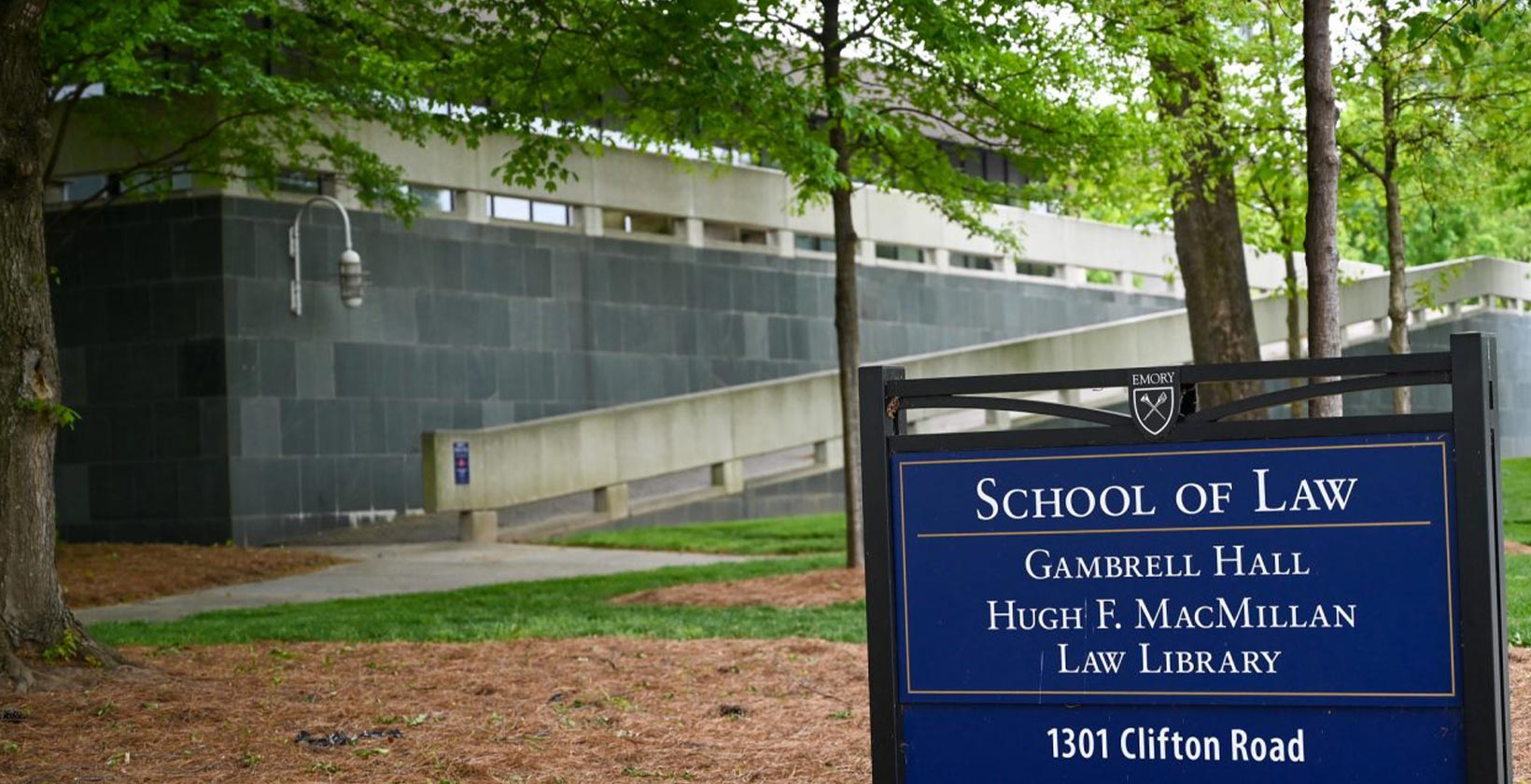
Emory University School of Law, located in Atlanta, Georgia, offers a comprehensive legal education focusing on experiential learning. The institution emphasizes academic excellence and practical skills, preparing students to address global challenges. Emory Law’s commitment to family law education is notable, providing a robust foundation for aspiring family law practitioners. The school’s environment encourages students to significantly impact their legal careers, reflecting the institution’s dedication to producing well-rounded legal professionals. Emory Law offers a Juris Doctor (JD) program alongside LLM, SJD, and joint degree programs. The JD program requires three academic years of study, covering foundational courses and allowing specialization in various legal fields. Students complete 90 semester hours of course credit, including six experiential learning credits. The family law curriculum includes practical training and theoretical courses, equipping students with the necessary skills and knowledge. The approach ensures students are well-prepared for family law careers.
The acceptance rate for Emory Law stands at approximately 40.9%, with a median LSAT score of 166 and a median GPA of 3.82 for the entering class of 2023-2024. The competitive admissions process attracts high-achieving students, enhancing the law school’s academic environment. Applicants interested in family law choose Emory Law for the institution’s specialized programs and experiential learning opportunities. The admissions criteria reflect the school’s commitment to maintaining high educational standards. The total cost of attendance at Emory Law for the 2023-2024 academic year, including tuition, fees, and living expenses, is approximately $96,884. The investment provides access to top-tier legal education and extensive resources. Financial aid and scholarships are available to support students, particularly individuals pursuing careers in family law. The substantial cost is balanced by the comprehensive education and opportunities offered, preparing graduates for successful legal careers.
Emory Law is highly regarded, consistently ranking among the top law schools in the United States. Emory, currently ranked #29 among ABA-accredited law schools by U.S. News & World Report, excels in various legal disciplines, including health law, civil litigation, and criminal law. The family law program is recognized for the institution’s depth and practical approach. The law school’s reputation attracts students and faculty dedicated to academic and professional excellence. Emory Law offers several specialized programs, including Health Law, Civil Litigation and Dispute Resolution, Criminal Law, Law and Religion, and Family Law. The family law program provides courses and clinics covering topics like child advocacy, domestic violence, and family dispute resolution. The specialized programs prepare students for specific legal fields, ensuring comprehensive education. Emory Law’s emphasis on practical experience, particularly in family law, equips students with the skills needed for their legal careers.
Emory University School of Law boasts a distinguished faculty with notable expertise in family law. Barbara Bennett Woodhouse, a leading authority on children’s rights and family law, has an extensive background in child welfare and constitutional law. Martha Albertson Fineman, a Robert W. Woodruff Professor of Law, focuses on child advocacy, children’s rights, and reproductive issues. Melissa D. Carter, Executive Director of the Barton Child Law and Policy Center, shapes child welfare policy and legislation at the state and federal levels. Emory Law offers several clinical opportunities in family law through the Barton Child Law and Policy Center. The center provides students with practical experience in child advocacy, representing children’s legal interests in juvenile court and child welfare systems. Students participate in policy reform, legislative advocacy, and litigation, gaining hands-on experience in real-world legal settings. Clinical opportunities enhance students’ practical skills, making Emory one of the best family law schools.
Emory Law has a strong network of alumni who have made significant contributions to family law. Sharon Gay, a prominent attorney in Atlanta, is known for her work in public policy and urban development intersecting with family law. Steve Sadow, renowned for criminal defense work, includes high-profile custody disputes and domestic cases. Laurie Speed, a dedicated family law attorney, is recognized for litigation work, including a notable $11 million verdict. The alumni network supports graduates’ careers in family law. Emory Law provides a variety of courses related to family law. Family Law I and II cover fundamental principles and contemporary issues. Child Welfare Law and Policy, taught by Professor Melissa D. Carter, focuses on legal frameworks governing child welfare and advocacy. The courses equip students with essential knowledge and skills for family law careers. The comprehensive curriculum ensures students are well-prepared to handle complex family law cases, enhancing their legal expertise.
Emory Law graduates have a strong track record of securing employment in prestigious positions, including family law graduates. The class of 2023 saw an 88.2% employment rate within 10 months of graduation, with 94% in JD-required or JD-preferred roles. Robust career services and networking opportunities significantly enhance employment prospects for graduates. Individuals specializing in family law benefit from the law school’s strong focus on practical experience and alumni support, making Emory a top choice for aspiring family law practitioners.
10. Drake University Law School
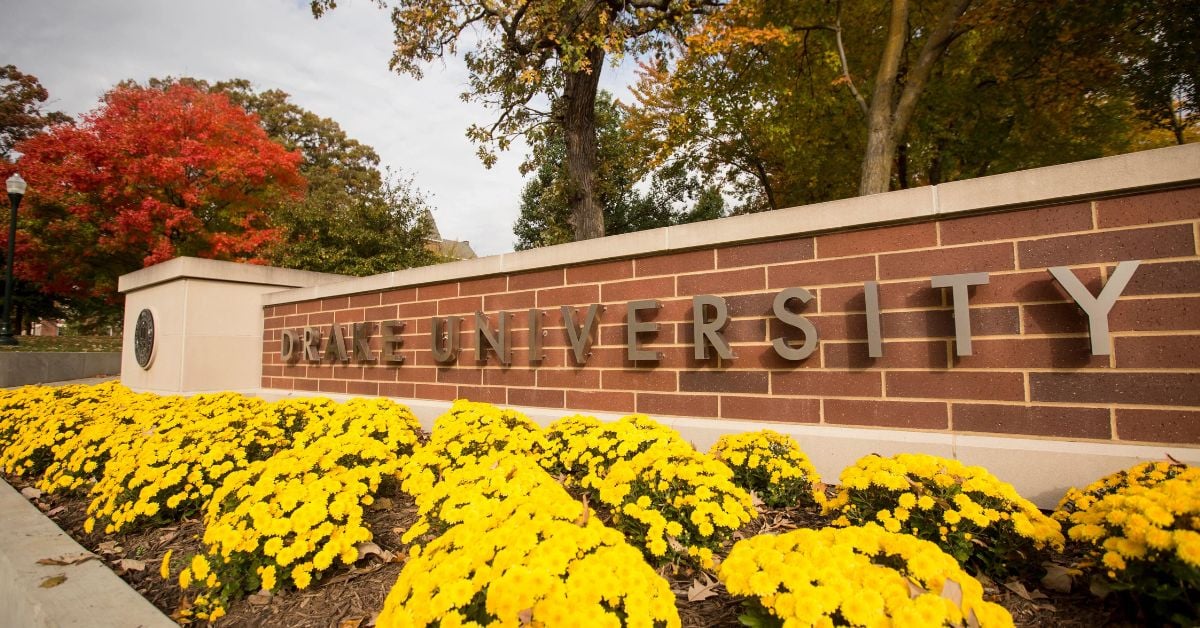
Drake University Law School, established in 1865, is one of the oldest law schools in the United States. Drake Law offers a blend of rigorous academic training and practical experience located in Des Moines, Iowa. The school provides students with a solid foundation in legal theory and practical skills essential for a successful legal career. The commitment to family law education ensures students are well-prepared for specialized legal careers. Drake Law offers a Juris Doctor (JD) program with opportunities for joint degrees, including JD/MBA, JD/MPA, and JD/PharmD. The program emphasizes experiential learning through the institution’s First-Year Trial Practicum and various legal clinics. Clinics focus on children’s rights, criminal defense, and civil practice. The comprehensive approach ensures students receive practical training, preparing them for diverse legal careers, including family law.
Drake University Law School has an acceptance rate of approximately 69.4%. The median LSAT score for admitted students is 154, and the median GPA is 3.49. The school attracts high-achieving students interested in pursuing careers in family law. The admissions process reflects the school’s commitment to maintaining high academic standards and providing quality legal education. Tuition and fees at Drake Law School for the 2024 academic year are $48,410. Financial aid is received by students, with an average grant amount of $32,000. Financial assistance covers a significant portion of the tuition, making Drake Law one of the best value law schools for family law. The investment in legal education at Drake Law prepares students for successful legal careers.
Drake Law School is ranked #88 by U.S. News & World Report among ABA-accredited law schools. The school is recognized for its strong legal writing program, ranked #11, and the institution’s clinical training program ranked #53. The recognition as a “Best Value Law School” highlights its affordable tuition and strong job placement rates. The family law program benefits from the school’s overall reputation.
Drake Law offers several specialized programs, including Children’s Rights and Family Law, through the Middleton Center for Children’s Rights. Students engage in advocacy and policy work on child welfare and children’s rights. Other specialized programs include Civil Litigation and Dispute Resolution International Law, as well as Global Citizenship. The Institute for Justice Reform and Innovation focuses on research and training in areas like implicit bias and sentencing reform.
Drake University Law School has several esteemed faculty members renowned for their expertise in family law. Suzan Pritchett, Director of Clinics and Experiential Education, specializes in immigration law and family law. Nickole Miller, Director of the Joan and Lyle Middleton Center for Children’s Rights, focuses on juvenile law and family law. The professors provide significant contributions to clinical education and practical training. The expertise of the faculty members enhances the law school’s strong family law program, benefiting students. Drake Law offers robust clinical opportunities through the Joan and Lyle Middleton Center for Children’s Rights. Students engage in real-world legal practice in child advocacy, juvenile law, and family law. Participation in the Children’s Rights Clinic allows students to handle cases related to child welfare and juvenile delinquency. The Refugee Clinic and General Civil Practice Clinic provide additional hands-on experience in family law contexts. Clinical opportunities prepare students for successful family law careers.
Drake Law School boasts a strong network of alumni who have excelled in family law. Kerrigan Owens, instrumental in establishing a clinic for young mothers, addresses issues like custody and domestic violence. Andrea Charlow, a faculty member, teaches family law and alternative dispute resolution. Alumni achievements and faculty connections support students in building successful careers in family law. Networking opportunities contribute to Drake’s reputation as one of the best family law schools. Drake Law School offers a comprehensive family law curriculum, including Family Law, Children and the Law, and Juvenile Law. The courses provide theoretical knowledge and practical skills through experiential learning opportunities. Clinics and externships enhance students’ understanding of family law practice. The curriculum prepares students for various family law careers, equipping them with the necessary tools and experiences. Educational offerings strengthen Drake Law’s position in family law education.
Drake Law graduates have a strong employment track record, with a 91.7% employment rate for JD-required and JD-preferred positions within ten months of graduation. Graduates specializing in family law frequently secure positions in prominent law firms and family advocacy organizations. The law school boasts a high Bar passage rate, with 81.5% of first-time takers passing the Iowa Bar in 2023. The outcomes reflect the effectiveness of Drake Law’s emphasis on practical training and career readiness. Graduates pursuing family law careers benefit from the school’s robust training and support.
11. Loyola University Chicago School Of Law
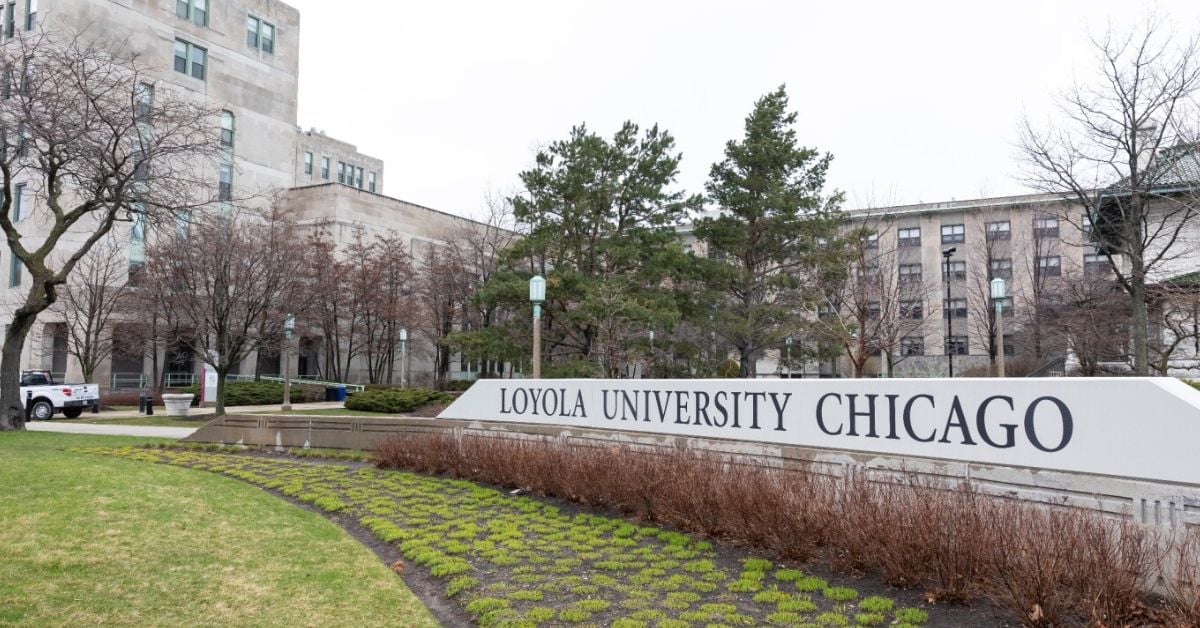
Loyola University Chicago is a private institution founded in 1870, located in Chicago’s Gold Coast neighborhood. The school offers a comprehensive legal education committed to public interest and social justice. Loyola provides robust academic programs that are known for their diverse student body. The urban setting and 105-acre campus enhance the educational experience. Loyola’s commitment to social justice attracts students interested in family law, preparing them to advocate for vulnerable populations. The JD program at Loyola University Chicago includes full-time, part-time, and Weekend JD options, providing flexibility for students. The curriculum emphasizes experiential learning through clinics, externships, and simulation courses. The approach ensures students gain practical legal skills essential for family law practice. The program’s flexibility allows students to balance their education with personal and professional commitments, making the institution accessible to a diverse student body.
The acceptance rate at Loyola University Chicago School of Law is approximately 79%. The median LSAT score for admitted students is 160, and the median GPA is 3.60. The statistics reflect the school’s competitive admissions process and commitment to academic excellence. Applicants are drawn to Loyola’s strong family law program, which provides extensive practical and theoretical training. The acceptance rate highlights the school’s accessibility to qualified candidates. Tuition and fees at Loyola University Chicago School of Law for the 2025 academic year are $56,450. Financial aid is received by 95.11% of full-time students at Loyola University Chicago School of Law, with grants or scholarships averaging $30,700. Financial assistance reduces financial barriers, making Loyola one of the best law schools for studying family law. Investing in legal education at Loyola prepares students for successful careers in family law and other legal fields.
Loyola University Chicago School of Law is ranked #72 nationally by U.S. News & World Report. The school is particularly noted for its programs in health law, family law, and trial advocacy. Ranking highly in the specialties solidifies Loyola’s reputation among the best law schools in Illinois. The family law program’s high ranking attracts students committed to advocacy and social justice, enhancing the school’s academic environment. Loyola offers several specialized programs, including Health Law, Family Law, Trial Advocacy, and Public Interest Law. The Family Law program at Loyola is highly regarded, focusing on child and family advocacy, domestic violence, and custody issues. Clinical opportunities provide hands-on experience in real-world legal settings. The specialized programs ensure students receive a comprehensive education, preparing them for successful careers in family law and other legal disciplines.
Loyola University Chicago School of Law has several distinguished faculty members specializing in family law. Katherine Kaufka Walts, Director of the Center for the Human Rights of Children, is known for her work on child labor trafficking and children’s rights. Bruce Boyer, Clinical Professor and Director of the Civitas ChildLaw Clinic, specializes in child advocacy and juvenile justice. Sacha Coupet, Professor and Director of Research at the Civitas ChildLaw Center, focuses on child development and welfare policy, enhancing the family law program. Loyola offers extensive clinical opportunities through the Civitas ChildLaw Center. Students participate in the ChildLaw Clinic, ChildLaw Policy and Legislation Clinic, and various externships. The clinics provide hands-on experience representing children and families in legal matters, including child welfare and juvenile justice. Practical experiences gained through the clinics prepare students to advocate effectively for children and families. Loyola’s clinical programs are essential for individuals pursuing careers in family law.
Loyola University Chicago School of Law has a strong alumni network that has made significant contributions to family law. Peg McDonnell Breslin, a former Illinois House member, became the first woman elected to the Illinois Appellate Court outside Cook County. Suzanne B. Conlon, a United States Federal Judge, is known for her work in family law and children’s rights. Tom Dart, Sheriff of Cook County, improves child protection and welfare systems. The alumni network supports graduates in family law careers. Loyola offers a comprehensive curriculum in family law. Courses include Child, Parent, and State, Education Law and Policy, Juvenile Justice, and Family Law. Additional courses like ChildLaw Trial Practice and Human Trafficking: Advancing Protections for Children Practicum are available. The ChildLaw Clinic and ChildLaw Policy and Legislation Clinic provide practical skills. The courses prepare students with theoretical knowledge and practical experience needed to advocate for children and families effectively.
Graduates of Loyola University Chicago School of Law have strong employment outcomes, including family law graduates. The Bar exam pass rate is 74.1%, and 84% of graduates secure full-time employment within ten months. Loyola’s extensive alumni network and robust career services contribute to high employment rates. Individuals specializing in family law and child advocacy benefit from the resources. Loyola’s focus on practical training and career readiness makes it one of the best law schools.
12. University Of Virginia School Of Law
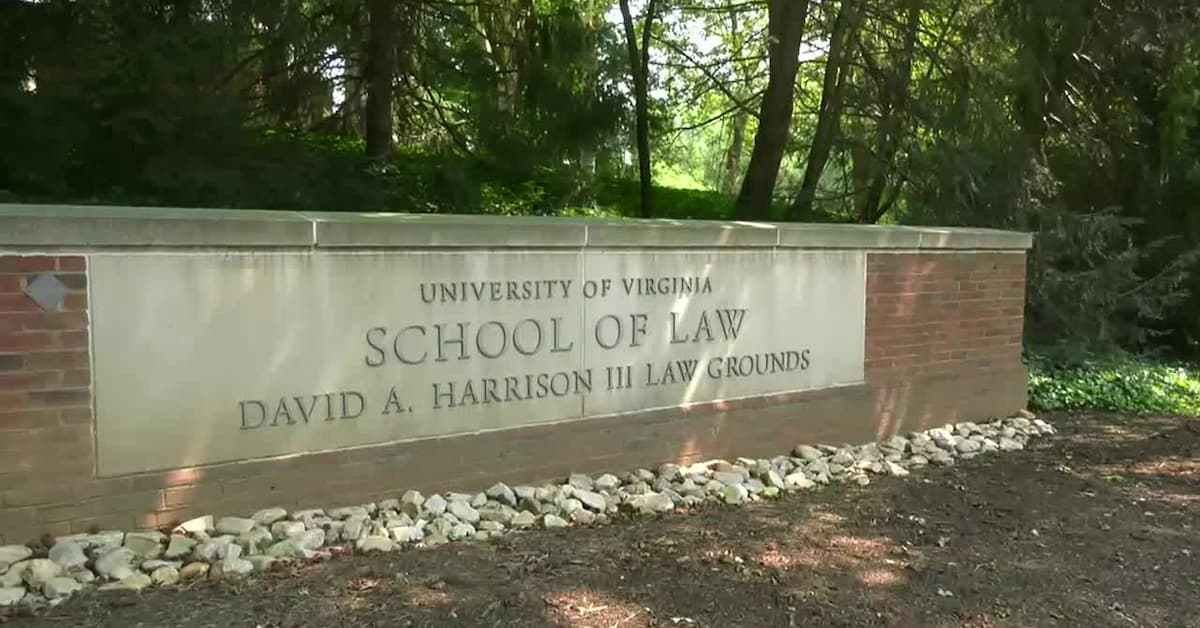
The University of Virginia School of Law, established in 1819 by Thomas Jefferson, is located in Charlottesville, Virginia. UVA Law consistently ranks among the top law schools nationally and is one of the oldest law schools in the United States. The school offers a robust legal education, combining traditional academic rigor with practical training. Students benefit from a supportive and engaging learning environment, making UVA Law a premier destination for aspiring legal professionals. UVA Law offers a Juris Doctor (JD) program, along with LL.M. and S.J.D. degrees. The JD program features a comprehensive curriculum with over 250 courses and seminars annually. Numerous clinics and practical training opportunities are available, providing hands-on legal experience. The program’s flexibility allows students to tailor their education to specific interests, including family law. The diverse course offerings prepare students for various legal careers.
The acceptance rate for UVA Law is highly competitive at approximately 11-12.88%. The median LSAT score for admitted students is 171, and the median GPA is 3.94. The competitive admissions process ensures a high-caliber student body. UVA Law attracts students who are dedicated to excelling in their legal studies. The school’s reputation as one of the best law schools in the nation draws many applicants. Tuition and fees for the 2024-2025 academic year are $71,200 for Virginia residents and $74,200 for non-residents. The total estimated cost of attendance, including living expenses, is $106,747 for residents and $109,747 for non-residents. Financial aid options help mitigate costs, making legal education accessible. The investment in UVA Law prepares students for successful legal careers. Graduates pursue family law due to the comprehensive training provided.
UVA Law is highly regarded for academic rigor and student experience, ranked #4 nationally by U.S. News & World Report. The school receives top marks for quality of life, faculty, and classroom experience from The Princeton Review. The family law program’s strength contributes to UVA Law’s reputation. UVA Law is recognized as one of the best law schools in Virginia, attracting students nationwide. The supportive environment enhances the educational experience. UVA Law offers numerous specialized programs, including Family Law, Environmental Law, Human Rights Law, Health Law, and Criminal Justice. The Family Law program provides courses and clinics focused on child advocacy and family law through the institution’s Family Law Center. The specialized programs ensure students receive in-depth training and practical experiences. The diverse offerings prepare students for specialized legal careers, making UVA Law a leader in family law education.
The University of Virginia School of Law has notable faculty members specializing in family law. Naomi R. Cahn, an expert in family law, trusts and estates, and reproductive technology, co-directs the Family Law Center. Gregg Strauss, co-director of the Family Law Center, specializes in family law, legal theory, and marriage and cohabitation law. The professors contribute significantly to the field, enhancing the family law program. The expertise of the faculty members supports UVA Law’s commitment to providing top-tier legal education.
UVA Law offers extensive clinical opportunities through the Family Law Center. Students gain hands-on experience in family law cases, including child advocacy, custody disputes, and domestic violence cases. Participation in clinics like the Holistic Juvenile Defense Clinic and Youth Advocacy Clinic provides practical training. The experiences prepare students for real-world legal challenges. Clinical opportunities make UVA Law one of the best law schools for family law, offering invaluable practical skills. UVA Law has a robust network of alumni who have made significant contributions to family law. Judge Carlton Reeves, a U.S. District Court Judge, is recognized for his work in civil rights and family law. Tom Dart, Sheriff of Cook County, Illinois, is known for reforms in the criminal justice system and efforts to improve child protection and welfare systems. The alumni network supports students’ career development, enhancing their prospects in family law.
UVA Law offers various family law courses, including Family Law, Child, Family, and State, Juvenile Justice, and Adoption Law. Other courses, including Domestic Violence Law and Children’s Rights, are available. The courses provide a comprehensive understanding of family law issues. Practical skills necessary for effective advocacy are emphasized. The curriculum ensures students are well-prepared for careers in family law. Graduates focusing on family law find roles in prestigious law firms and dedicated family law practices. UVA Law graduates have strong employment outcomes, with 99.6% of the Class of 2023 securing full-time, long-term positions requiring Bar passage. Graduates find employment in top law firms, judicial clerkships, government, and public interest roles. The school consistently ranks highly for employment rates and salary outcomes. Strong career services and a supportive alumni network contribute to UVA Law’s success in placing graduates in prestigious positions, especially in family law.
What Factors Determine The Quality Of Law School Career Services?
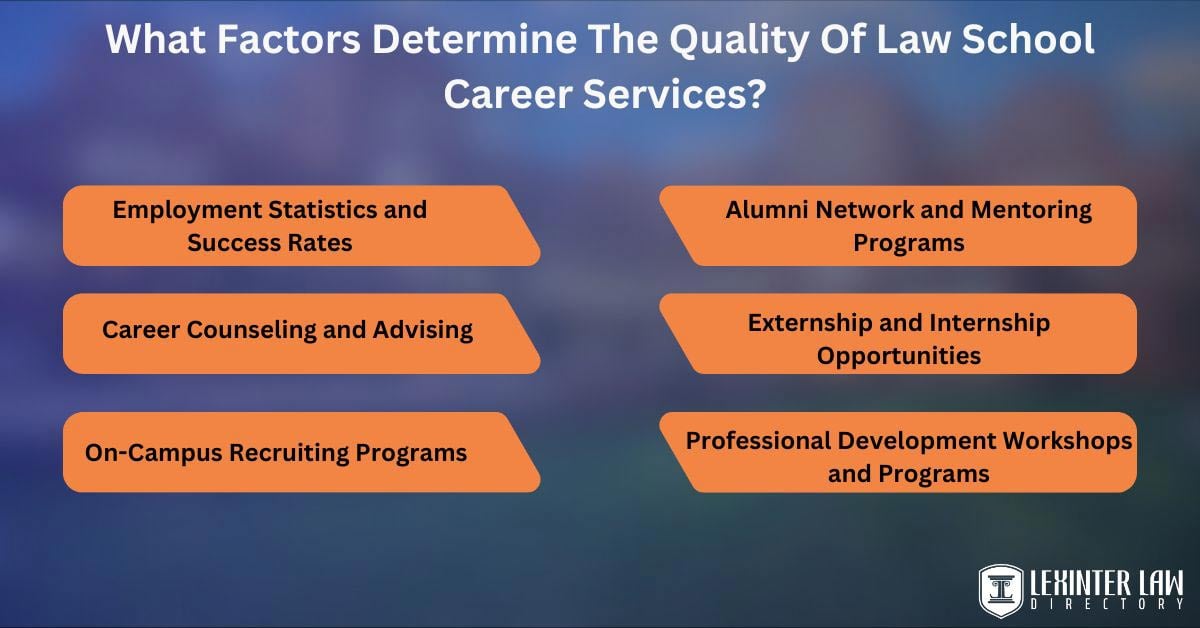
The 6 factors that determine the quality of law school career services are listed below.
- Employment Statistics and Success Rates: Employment statistics and success rates indicate the percentage of graduates securing legal positions within a specified period shortly after graduation. High employment rates suggest robust career support and effective networking opportunities facilitated by the law school.
- Alumni Network and Mentoring Programs: A strong alumni network provides valuable connections and mentorship opportunities for current students, enhancing career support. Alumni’s active involvement translates into meaningful networking opportunities and insights into the legal profession, benefiting students in their career development.
- Career Counseling and Advising: Comprehensive career counseling services offer personalized guidance on crafting effective resumes and cover letters and honing interviewing skills tailored specifically to legal professions. The counseling provides strategic advice on navigating the legal job market and optimizing job search strategies for better career outcomes.
- Externship and Internship Opportunities: Access to practical experience through internships and externships is crucial for gaining hands-on legal training and enhancing job placement prospects post-graduation. Strong relationships with law firms, government agencies, and corporate legal departments enable students to apply theoretical knowledge in real-world settings.
- On-Campus Recruiting Programs: Law schools that organize on-campus recruiting events facilitate direct interactions between employers and students, streamlining the internship and job placement process. The events provide opportunities for students to secure internships and entry-level positions in legal settings, leveraging the school’s network and reputation.
- Professional Development Workshops and Programs: Workshops focused on networking, professional etiquette, and specialized legal sectors (such as public interest law or corporate law) equip students with essential skills for professional success. The programs supplement academic learning with practical insights and industry-specific knowledge, preparing students to navigate diverse career paths within the legal field effectively.
What Is Family Law?
Family law is a legal specialty concerned with the legal rights and responsibilities of family members and domestic partners. Family law governs the formation and termination of family units and the rights and obligations arising from individual relationships. The primary focus involves ensuring legal recognition and protection of family relationships, as well as addressing issues, including marriage, divorce, child custody, and support. Family law encompasses various legal matters like adoption, paternity, and domestic violence. Legal professionals must navigate emotionally charged cases, requiring strong interpersonal skills and empathy. Family law provides a comprehensive legal framework for maintaining, dissolving, and protecting families, ensuring the well-being and rights of all family members are upheld.
Family law, a legal domain, governs familial and domestic relationships, addressing the legal rights and obligations of individuals involved. The formation and dissolution of family units fall under family law, encompassing marriage, divorce, and domestic partnerships. Legal recognition and responsibilities related to domestic partnerships are covered, similar to marriage. Law schools for family law provide specialized training to handle cases involving child custody, support, adoption, and paternity. Legal protection for victims of domestic violence is a critical aspect of family law, influencing custody decisions. Family law practitioners must manage sensitive, emotionally charged issues, requiring a deep understanding of legal principles and human relationships.
Family law covers various legal issues, including marriage, domestic partnerships, and divorce. Legal requirements for marriage, as well as prenuptial and postnuptial agreements, are essential components. Domestic partnerships, legally recognized in some jurisdictions, come with their rights and responsibilities. Divorce proceedings address property division, child custody, child support, and spousal support. Child custody and support involve legal agreements or court decisions on living arrangements and financial support. Adoption processes, establishing legal fatherhood, and guardianship appointments fall under family law. Family law deals with juvenile dependency, addressing neglect, abuse, or delinquency. Surrogacy arrangements require legal agreements, ensuring clear parental rights and responsibilities.
What Do Family Lawyers Major In?
Family lawyers major in psychology, sociology, political science, history, English, and communication, providing a strong foundation in human behavior, societal structures, and effective communication. Psychology is a common choice, offering insight into client behavior and emotional dynamics in family law cases. Sociology provides an understanding of social systems and structures, which is crucial for family legal matters. Political Science and History are popular due to their focus on government, legal systems, and analytical skills, which are essential for law school preparation. English or Communication majors develop critical reading, writing, and public speaking skills, vital for a legal career. Choosing a major that hones analytical skills, reading comprehension, and logical reasoning is key to success in law school. Passion for the subject leads to better academic performance and a higher GPA, which is important for law school admissions. Law schools for family law value diverse academic backgrounds.
The best major for family law is psychology, offering a robust foundation for understanding human behavior, emotions, and social interactions. Psychology majors gain insights into various aspects of human development, personality, and social behavior, crucial for handling family law cases. The insights help family lawyers navigate complex family dynamics and effectively address issues such as divorce, child custody, and domestic violence. Courses cover topics like developmental psychology, social psychology, and abnormal psychology, equipping future lawyers with essential knowledge. Psychology students develop strong research, analytical, and communication skills, vital for constructing persuasive arguments and presenting cases in court. Psychology majors are trained to approach problems with empathy and critical thinking, which is crucial for dealing with sensitive family issues. Majoring in psychology provides a comprehensive understanding and essential skills, making it an excellent choice for aspiring family lawyers.
How To Become A Family Lawyer
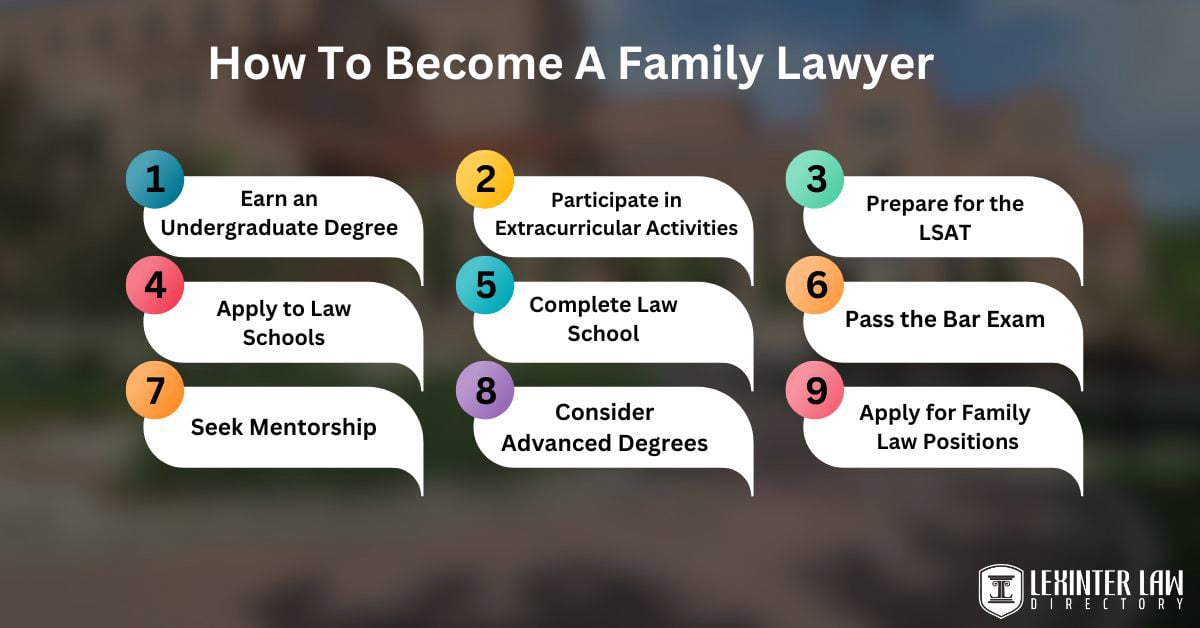
To become a family lawyer, follow the 9 steps listed below.
- Earn an Undergraduate Degree. Complete a Bachelor’s degree from an accredited university. Law school admission does not require specific majors, but fields like government, political science, psychology, sociology, history, or English are recommended. Aspiring students must aim to maintain a GPA above 3.5 to enhance their chances of admission to reputable law schools. The undergraduate program spans 4 years, providing foundational knowledge and critical thinking skills essential for legal studies and future practice in family law.
- Participate in Extracurricular Activities. Engage actively in extracurricular activities during undergraduate years to demonstrate leadership, collaboration, organization, and responsibility. Volunteer work highlights commitment to public service and community involvement, particularly in community service roles. The activities enrich personal development and strengthen law school applications by showcasing diverse skills and a well-rounded background suited for a career in family law.
- Prepare for the LSAT. The Law School Admission Test (LSAT), a standardized exam that assesses critical reading, analytical reasoning, and logical reasoning skills, requires thorough preparation. Achieving a high score on the LSAT is crucial for admission to competitive law schools offering strong family law programs. Aspiring students must utilize LSAT prep materials, take practice exams, and consider retaking the test if necessary to achieve target scores and improve their chances of acceptance into law schools.
- Apply to Law Schools. Research and apply to law schools renowned for robust family law programs and comprehensive legal education. Look for institutions offering relevant coursework, externship opportunities, practicums, and legal clinics focused on family law. Consider each school’s admission requirements, including median GPA and LSAT scores, to align with academic strengths and career goals in family law practice.
- Complete Law School. Enroll in a Juris Doctor (JD) program at an accredited law school and complete the 3-year curriculum. Prioritize coursework and clinical experiences related to family law during legal education, including child advocacy, mediation, domestic relations, and estate planning. Participate actively in legal clinics, internships, and moot court competitions to gain practical skills and insights into handling family law cases.
- Pass the Bar Exam. Graduating from law school necessitates diligent preparation for the Bar exam administered by the state where intending to practice law. The Bar exam tests knowledge of general legal principles and specific state laws governing family matters. An aspiring lawyer aiming to become a family lawyer must establish a structured study schedule. The aspiring lawyer must utilize Bar review courses and practice exams and seek guidance from mentors or peers who have successfully passed the exam. Passing the Bar exam is essential for obtaining licensure and practicing law as a family lawyer in a jurisdiction.
- Seek Mentorship. Seek mentorship from experienced family law practitioners who provide invaluable guidance, share insights, and offer support while navigating the complexities of family law practice. Mentors offer practical advice on building client relationships, handling cases effectively, and advancing a career in family law. Connect with mentors through law school faculty members, legal professional associations, or local Bar associations specializing in family law.
- Consider Advanced Degrees. Consider pursuing advanced degrees such as a Master of Laws (LLM) or other post-JD certifications specializing in family law. Advanced degrees offer opportunities to deepen expertise, explore specialized areas within family law, and differentiate in the competitive legal job market. Choose programs offering specialized coursework, research opportunities, and practical training relevant to career aspirations in family law practice.
- Apply for Family Law Positions. Begin applying for positions in law firms, nonprofit organizations, government agencies, or legal clinics specializing in family law. Look for roles that allow for handling diverse family law matters, including divorce, child custody, adoption, and domestic violence. Tailor job applications to highlight relevant coursework, clinical experience, internships, and specialized training in family law.
How Long Would It Take To Study Family Law?
It would take 7 years to study family law, combining undergraduate education and law school. The journey begins with a 4-year Bachelor’s degree in fields like government, Psychology, Sociology, Political science, or English. The areas help develop essential skills for family law practice. Aspiring lawyers must pass the LSAT, which requires several months of preparation, after earning a Bachelor’s degree. Law school then takes 3 years to complete, resulting in a Juris Doctor (JD) degree. Students take elective courses during law school on family law topics such as divorce, child custody, and adoption.
The duration and timeline of family law study span 7 years. The initial 4 years involve completing an undergraduate degree in relevant fields like government, Psychology, Sociology, Political science, or English. The areas provide a strong foundation for developing essential skills needed in family law. Aspiring family lawyers take the LSAT, which requires several months of preparation following the Bachelor’s degree. Students enter law school, which lasts 3 years after passing the LSAT. Law schools for family law offer specialized elective courses on divorce, child custody, and adoption. Graduates must then pass the Bar exam in their chosen state, a rigorous process involving several months of intensive study. Family lawyers must engage in continuing legal education (CLE) to keep their knowledge current after obtaining a license to practice law. An LLM (Master of Laws) in family law is pursued by family lawyers seeking further specialization.
Is The Family Law Hard?
Yes, family law is hard due to its emotionally taxing nature and complex legal requirements. Family law involves dealing with sensitive issues, including divorce, child custody, and domestic violence. Clients experience high emotional distress during periods of divorce, child custody battles, and domestic violence, requiring lawyers to be empathetic and patient. Legal complexities arise from intricate matters like property division and child support calculations, demanding a strong understanding of family law statutes. Lawyers must stay updated on evolving laws and precedents to provide the best representation. Law schools for family law emphasize the need for comprehensive legal knowledge and practical skills to navigate the challenges effectively.
Family law is challenging because of high-conflict scenarios involving divorce, child custody, and domestic abuse, which are emotionally draining. Family lawyers must manage complex emotional dynamics while maintaining professional objectivity, risking burnout. Cases involve aspects of real estate, estate and trust law, and business law, demanding customized legal strategies. Family lawyers assume roles like mediators and counselors, adding to the overwhelming nature of the practice. Family law, though challenging, offers the reward of resolving disputes and significantly impacting clients’ lives. Law schools for family law prepare students for the multifaceted demands.
What Is The Difference Between A Family Lawyer And A Human Rights Lawyer?
The difference between a family lawyer and a human rights lawyer lies in their areas of specialization and focus. Family lawyers handle legal issues related to family relationships, including divorce, child custody, adoption, and domestic violence. Human rights lawyers focus on protecting individuals’ fundamental rights, addressing issues like discrimination, torture, and freedom of speech. Family lawyers work within family law, dealing with personal and emotional aspects of their clients’ lives. Human rights lawyers address broader issues affecting human rights nationally or internationally, involving significant legal principles and policies.
Family lawyers specialize in legal matters concerning family relationships, including marriage, children, and domestic relationships. The lawyers mediate, draft legal documents, and represent clients in court for family-related disputes. Human rights lawyers focus on defending and protecting individuals’ fundamental rights as outlined in human rights legislation, such as the Universal Declaration of Human Rights. The lawyers handle cases involving wrongful imprisonment, police brutality, asylum applications, and rights violations by government entities. Family and human rights lawyers require a deep understanding of their respective legal fields and strong advocacy skills to represent their clients effectively.
The differences between family lawyers and human rights lawyers primarily involve their scope of practice, types of cases, and client base. Family lawyers handle personal and emotional aspects of their clients’ lives, including divorce proceedings, child custody disputes, prenuptial agreements, and spousal support issues. A human rights lawyer addresses broader issues on a national or international scale, dealing with significant legal principles and policies. Family lawyers represent individual clients dealing with personal family matters, while human rights lawyers represent individuals, groups, or NGOs fighting against systemic violations and seeking justice for marginalized or oppressed communities.
The similarities between family lawyers and human rights lawyers include providing legal representation and advice to clients ensuring their rights are protected. Family and human rights lawyers must appear in court, presenting evidence and arguments to support their clients’ cases. Advocacy is a crucial part of the profession, with family lawyers negotiating settlements in family disputes and human rights lawyers challenging human rights abuses through legal action. Lawyers play essential roles in the legal system, ensuring that individuals’ and communities’ rights and interests are upheld, whether in personal family matters or broader societal issues. Law schools for family law provide specialized training for aspiring family lawyers.
How To Find A Good Family Lawyer Near Me With Lexinter?
To find a good family lawyer near me with Lexinter involves accessing the website and following strategic steps. Access the Lexinter website, where the search bar allows input of city, state, or region. Specific filters narrow the search by law categories, such as family law. The function is particularly useful for locating top lawyers specializing in family law within a given area. Lexinter Law Directory offers a premium listing feature, including detailed attorneys’ profiles. The profiles provide crucial information, including firm name, address, phone number, credentials, hours of operation, and links to Google My Business and social media profiles. Lexinter enables potential clients to schedule consultations, ensuring a seamless process for finding legal representation.
The comprehensive nature of Lexinter Law Directory ensures that individuals make informed decisions when seeking a family lawyer. The platform connects people in need with qualified attorneys who assist with various legal matters. Facing divorce, child custody issues, or other family-related legal challenges requires understanding the legal processes involved. Lexinter helps locate the best family lawyers nearby. The inclusion of detailed attorney profiles, client reviews, and easy access to contact information enhances the ability to find competent legal help. Attorneys registered on Lexinter increase their online presence and visibility, making it easier for potential clients to find and contact them. Lexinter’s extensive database and user-friendly interface streamline the search for reputable family lawyers.

